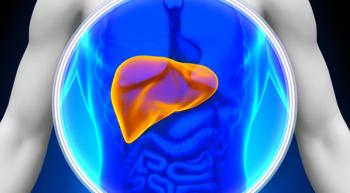
Dr. Scott Kopetz discusses the BREAKWATER trial investigating Braftovi and Erbitux plus chemo in those with BRAF V600E+ metastatic colorectal cancer.

Dr. Scott Kopetz discusses the BREAKWATER trial investigating Braftovi and Erbitux plus chemo in those with BRAF V600E+ metastatic colorectal cancer.

Neoadjuvant Keytruda for patients with deficient DNA mismatch repair colon cancer resulted in a pathological complete response rate of 44%.

Although ctDNA positivity generally meant worse disease-free survival in stage 3 resected colon cancer, patients with ctDNA who received Celebrex had significantly better rates versus placebo.

Dr. Susumu Hijioka spoke about the benefit of this combination therapy in patients with unresectable or recurrent GEP-NETs, particularly those with high Ki-67 scores.

Among patients with resected gallbladder cancer, the addition of chemoradiation to chemotherapy treatment did not improve relapse-free survival.

Opdivo plus Yervoy shows efficacy and manageable safety as first-line treatment for unresectable hepatocellular carcinoma in the CheckMate 9DW study.

Aspirin use in patients with PI3K-mutated colorectal cancer helped to reduce disease recurrence, highlighting the importance of upfront genomic testing.

A study showed Cabometyx improved time before disease progression in advanced digestive NETs compared with placebo.

Treatment with bezuclastinib plus Sutent led to safe and efficacious outcomes versus Sutent treatment alone in gastrointestinal stromal tumors.

Adults with primary primary appendiceal adenocarcinoma face a higher risk of developing a second primary cancer, including colorectal and prostate cancers.

Opdivo plus chemo showed long-term survival advantages in Chinese patients with advanced gastric, gastroesophageal junction or esophageal cancer.

Among patients with advanced gastric and GEJ cancer, or esophageal adenocarcinoma, treatment with first-line Opdivo and chemo demonstrated deep responses.

SHR-1701 plus chemo suppressed chemo-associated myelosuppression in patients with HER2-negative gastric or gastroesophageal junction adenocarcinoma.

Afinitor plus Somatuline showed an improved survival compared with Afinitor monotherapy in patients with gastroenteropancreatic neuroendocrine tumors.

There are a few conversations patients should have with their care teams after being diagnosed with bladder cancer — especially as new treatments become more available.

Slower infusion rates of antiemetic drugs may help manage nausea and vomiting in patients with gastric or gastroesophageal junction cancers.

Circulating tumor DNA can be a valuable tool in gastric cancer, but unanswered questions remain, an expert said.

Older adults with gastric cancer tended to have better outcomes when they walked 2,500 steps per day or more.

Findings presented at the 2024 Gastrointestinal Cancers Symposium support Fruzaqla’s potential to provide an improved survival benefit and quality of life for those with previously treated metastatic colorectal cancer.

Adding Imfinzi and Avastin to transarterial chemoembolization led to a 23% reduction in the risk of progression or death in patients with liver cancer.

Circulating tumor DNA-based minimal residual disease lent insight into which patients with stage 2/3 colorectal cancer may be at higher risk for recurrence and which could benefit from postsurgical chemotherapy.

Patients with unresectable hepatocellular carcinoma and poor liver function were more likely to experience serious side effects leading to regorafenib treatment discontinuation, researchers have found.

Patients with resectable mismatch repair-proficient and -deficient colorectal cancer had robust responses to neoadjuvant botensilimab/balstilimab.

In patients with esophageal squamous cell carcinoma, the combination of Tecentriq, tiragolumab and chemotherapy improved survival outcomes, research found.

Keytrida plus Lenvima improved survival and duration of response in patients with advanced hepatocellular carcinoma.

The use of the chemotherapy regimen FOLFOXIRI plus Avastin has increased from 2013 to 2022 in patients with metastatic colorectal cancer, particularly in patients aged 50 years and younger.

Certain patients with metastatic colorectal cancer were more likely to have long-term remission to Stivarga treatment, recent research showed.

Treatment with Opdivo and chemotherapy improved survival in patients with gastrointestinal cancers, compared with chemotherapy alone, according to a phase 3 trial.

Patients with advanced gastric cancers tended to have better survival outcomes when given Opdivo plus chemotherapy, compared to those who were given chemotherapy alone.

Patients with pretreated metastatic colorectal cancer had better outcomes when Avastin was added to their Lonsurf treatment in the third line setting.